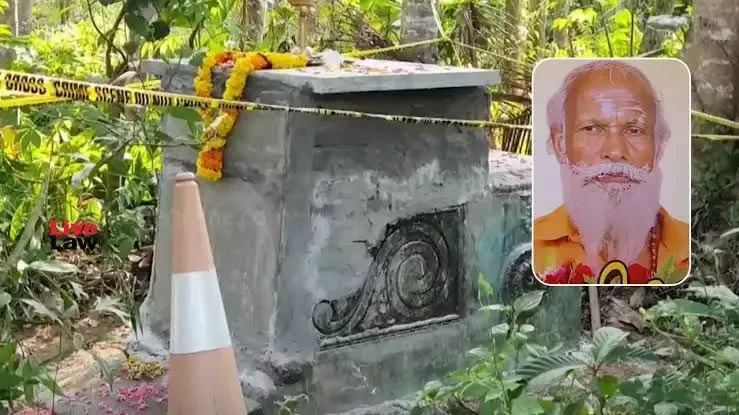Kerala Police Dig Up Temple Priest's Body Amid 'Samadhi' Controversy

Synopsis
Key Takeaways
- The exhumation of Gopan Swami's body was prompted by a missing person complaint.
- Local residents raised concerns about the unusual burial method.
- The Kerala High Court upheld the police's right to investigate the circumstances of the death.
- Swami was a former head-load worker who became a saint.
- The exhumation was conducted peacefully with police oversight.
Thiruvananthapuram, Jan 16 (NationPress) On Thursday, the Kerala police exhumed the body of a temple priest, Gopan Swami, whose enigmatic death and burial in a concrete chamber at Aralumoodu, Neyyatinkara, sparked significant controversy and public intrigue.
This incident gained attention when Swami’s family placed posters on January 10, asserting he had achieved Samadhi, a state of spiritual liberation.
The family’s claim, along with the peculiar burial method, led to numerous inquiries from local residents. They insisted that Swami’s burial was conducted in accordance with his wishes. The situation intensified when a missing person report was filed, prompting the Neyyatinkara police to launch an investigation.
In the early hours of Thursday, a substantial police presence was deployed to the burial site to secure the area and avert potential protests during the exhumation.
Upon uncovering the concrete chamber, officials found the body in a partially decomposed state, positioned in a meditative pose, encircled by sacred ash and various ritual artifacts.
After concluding the necessary inquest procedures at the site, the remains were transported to Thiruvananthapuram Medical College Hospital for a postmortem examination.
The exhumation was conducted under the oversight of Sub-Collector O.V. Alfred, along with forensic and fingerprint specialists.
Strict limitations were imposed on public and media access to maintain order. Five municipal councilors from Neyyatinkara were also present during the process.
Earlier attempts to unearth the body on Monday encountered resistance from the family and some local residents, who contended that the procedure infringed upon their religious rites.
Nevertheless, the Kerala High Court rejected the family's plea to prevent the exhumation. Justice C.S. Dias affirmed that investigative authorities have the right to investigate suspicious deaths or missing persons.
The investigation revealed that Gopan Swami was a former head-load worker who had abandoned his previous life to pursue sainthood. He founded an ashram and constructed a temple on his property in Kavuvilakam, Neyyatinkara.
His family alleged that Swami had requested a private burial, convinced he had attained Samadhi.
Rajasenan, Swamy’s son, informed the media that his father walked to the burial site on January 9, late at night, instructing the family to bury him discreetly without public involvement.
The exhumation process proceeded smoothly, with additional police personnel deployed to avert disturbances in the vicinity.










